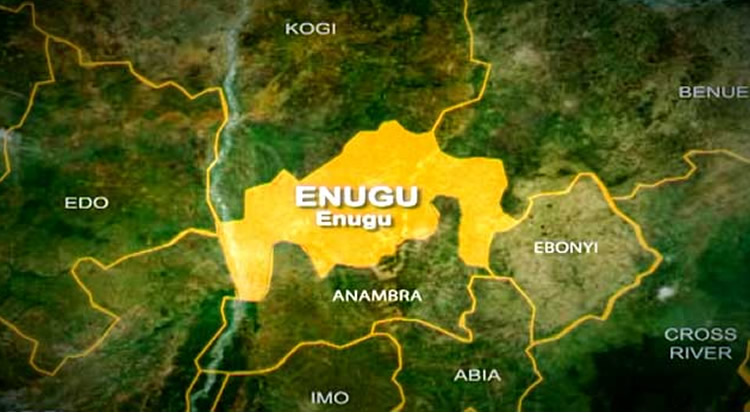The political landscape in Enugu and Cross River states is undergoing a significant transformation as a wave of defections from the Labour Party (LP) and the Peoples Democratic Party (PDP) bolsters the ranks of the ruling All Progressives Congress (APC). This shift in allegiance signals a potential realignment of political forces as the 2027 elections approach, with the APC aiming to capitalize on these gains to solidify its presence in the southeast and south-south regions of Nigeria. The defections are characterized by both elected officials and influential figures within the opposition parties, suggesting a deeper dissatisfaction with the current state of affairs within their former political homes.
In Enugu State, the defection of Sunday Umeha, a sitting member of the House of Representatives representing Udi/Ezeagu Federal Constituency, marks a significant breakthrough for the APC. Umeha becomes the first elected APC representative in the state since the party’s inception in 2014, signifying a potential crack in the PDP’s long-standing dominance in the region. His decision to join the APC, attributed to internal crises within the LP, underscores the challenges faced by the opposition in maintaining unity and cohesion. Furthermore, the simultaneous defection of Chief Joshua Ogbonna, a prominent LP financier, along with over 1,000 party members, including the entire local government structure of the LP in Igboeze South, amplifies the impact of Umeha’s move and suggests a broader trend of political realignment at the grassroots level.
The APC leadership in Enugu State has enthusiastically welcomed the influx of new members, viewing it as a validation of the party’s growing appeal and a harbinger of future electoral success. Uche Nnaji, the Minister of Innovation, Science and Technology and APC leader in Enugu, along with his former governorship running mate, George Ogara, hailed the arrival of these “credible grassroots politicians” as a turning point in the state’s political dynamics. Ugochukwu Agballah, the Enugu State APC Chairman, expressed confidence that the party is now well-positioned to wrest control of the state government from the PDP in the 2027 elections, attributing the PDP’s 26-year reign to widespread suffering and mismanagement. He highlighted issues such as excessive taxation, land grabs, and the demolition of citizens’ properties as evidence of the PDP’s failings.
Meanwhile, in Cross River State, the APC has also witnessed a significant boost to its ranks with the defection of Daniel Asuquo, alias “Dansuki,” a former House of Representatives member for Akamkpa/Biase Federal Constituency. Asuquo’s move from the PDP to the APC further strengthens the ruling party’s position in the state, particularly with the added support he brings from former LP and PDP members who have joined the APC coalition. He expressed confidence in Governor Bassey Otu’s administration, citing its focus on grassroots development and responsiveness to the needs of the people. Asuquo’s declaration that this coalition could deliver 500,000 votes to Governor Otu and President Bola Tinubu in 2027 highlights the potential electoral impact of these defections.
Asuquo emphasized that his decision to join the APC was driven by a desire to contribute to the state’s development and improve the well-being of its citizens. His commitment to service and collaboration with Governor Otu aligns with the APC’s broader message of inclusive governance and economic progress. The Cross River State APC Chairman, Alphonsus Eba, welcomed Asuquo’s entry into the party, praising his adherence to the party’s registration procedures and emphasizing his status as a “bona fide member.”
The defections in both Enugu and Cross River States highlight the fluidity of the political landscape and the strategic maneuvering taking place as parties prepare for the 2027 elections. The APC’s ability to attract prominent figures from opposition parties suggests a growing perception of the party’s viability and potential for future success. While the long-term impact of these defections remains to be seen, they represent a significant shift in the balance of power and could have profound implications for the upcoming electoral contests. The APC’s narrative of offering a viable alternative to the established order appears to be resonating with some segments of the electorate, potentially paving the way for a more competitive political environment in these states.
These defections are not merely isolated incidents but rather part of a broader pattern of political realignment taking place across Nigeria. The APC’s efforts to expand its reach beyond its traditional strongholds are gaining traction, particularly in regions where opposition parties have historically held sway. The combination of internal divisions within the opposition and the APC’s proactive recruitment strategy has created an opportune moment for the ruling party to consolidate its power and build a broader base of support. The 2027 elections will serve as a crucial test of the APC’s ability to translate these gains into electoral victories and solidify its position as the dominant force in Nigerian politics. The defectors, in turn, are betting on the APC’s perceived strength and potential to deliver on its promises of development and good governance. Their success or failure within the APC will ultimately depend on the party’s ability to manage internal dynamics and deliver tangible results for the constituencies they represent.














